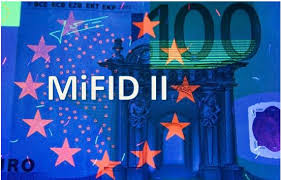 Who could get forget the triffids, created by acclaimed English science fiction author John Wyndham and described as a mobile, prolific and highly venomous plant species occupying a post-apocalyptic world. They became the focal villains of cult horror movie classic, The Day of the Triffids. Enter Mifid II, or Markets in Financial Instruments Directive legislation. It was created by the European parliament which described its invention as a far reaching series of directives designed to increase transparency, coordinate regulation and boost supervision. Sounds fairly innocuous. However, like its near namesakes, Mifid II should be approached with a serious degree of preparation, caution, respect and, perhaps, fear. It will spring into life in January 2018 and its birth should be greeted warily. For the EU, in its wisdom, has scheduled its introduction for the 3rd of the month which is not the first trading day of the new year but the second. Many believe the ideal behind Mifid II, to provide greater market transparency and increase investor protection, was a long time coming. What they have been rewarded with is an extremely complex regulatory framework with unknown but expectedly high implementation costs that seems to have induced emotions ranging from confusion to complete ignorance among those most affected. The main protagonists will be the sell-side banks, asset managers, broker-dealers and corporations. And, while it is EU-sourced, virtually no one will be untouched because of the difficulty to contain regulations within geographic boundaries in increasingly globalized capital markets. Brexit aside, the UK has formally embraced it in full. Companies domiciled outside the EU which market to, or transact with, firms or clients covered by Mifid II will be subject to the legislation. The most obvious consequence will be the unbundling of compensation to separate the research, execution and corporate access functions. Investment research will be a key issue. Traditionally, the cost of research was deemed to have been included in trading commissions. Not so under Mifid II which will require buy and sell side firms to break out research costs. This will result in asset managers having to absorb research costs directly or pass them on to their clients via higher management fees. Likewise, the sell-side will be directly responsible for the expense of providing research. In addition, they will be required to unbundle further related services such as calls with analysts, corporate access and conferences. The unbundling of direct commissions will shine a new spotlight on executions with a heavy focus on trade reporting which will affect the sell and buy side. For corporations, they will have to take more direct responsibility for promoting themselves to investment markets and move more into using paid third party research providers. They will no longer be able to take for granted that these services will be provided by the sell side banks. Spoiler Alert: The Triffids came from the USSR to take over most of the planet. The only escape was to the Isle of Wight. Let’s hope Mifid II has a more positive ending.
1 Comment
|
Authors:Robert Kennedy Archives
December 2022
Categories
All
|


 RSS Feed
RSS Feed